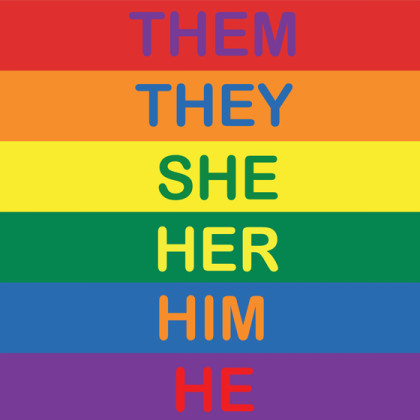Empowering Inclusion: The Importance of Pronouns in Today's World

You’ve heard a lot about pronouns in recent years! Maybe the place you work or your friend groups have been using them more frequently. You might see them more prevalently in email signatures or Zoom/social media profiles. These helpful gender indicators are here to stay… but there’s still education to be spread to deepen the understanding of why they are used, the importance they hold to individuals AND how you can help use them appropriately and help others do the same.
Our staff began including preferred gender pronouns in our email signatures in 2020, and we added gender identity to our intake forms to fill out if clients choose to. We regularly celebrate Pride Month, National Coming Out Day and other initiatives throughout the year that showcase and empower individuality.
Embracing a spectrum of identities is a way to EMPOWER yourself and others!
There are so many resources on personal pronouns (pronouns.org is a great place to start!) and below are a few from our team to put your pronoun usage into action!
Why Pronouns Matter:
Respect: Using someone's correct pronouns is a simple yet powerful way to show respect for their identity.
Inclusivity: It helps create a welcoming environment where everyone can be their authentic selves.
Empathy: It acknowledges and affirms the experiences of transgender, non-binary, and gender non-conforming individuals.
How You Can Help:
Ask and Share: Normalize the practice of sharing pronouns by including yours in introductions, email signatures, and social media bios.
Listen and Learn: If you’re unsure of someone’s pronouns, it’s okay to ask respectfully. Phrases like “What pronouns do you use?” can go a long way.
Correct Mistakes: If you use the wrong pronoun, apologize, correct yourself, and move on without making a big deal of it.
Educate Yourself: Familiarize yourself with different pronouns and their usage. Knowledge is a key step towards allyship.
Support: Stand up for others when you witness incorrect pronoun usage, and gently correct those who may not be aware.